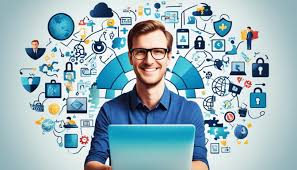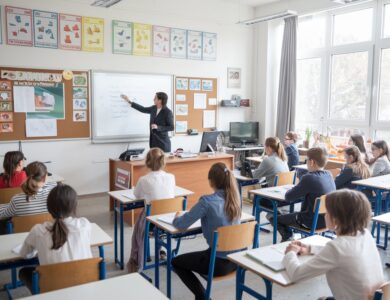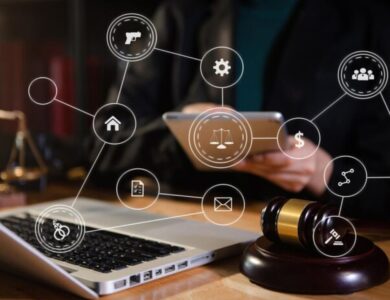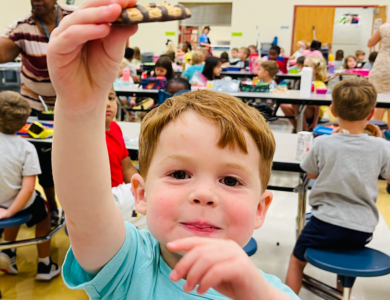
Digital literacy is the ability to find, understand, and share information using digital tools like computers, tablets, and phones. In today’s world, digital literacy is more important than ever because it helps us navigate the internet, social media, and use technology effectively. Whether you’re typing a message, searching for information online, or sharing a photo, digital literacy is the skill we all need to succeed in the modern world.
This skill isn’t just about using devices or browsing the web. It’s about understanding how to find reliable information, how to create and share your own ideas safely, and how to be responsible online. Digital literacy goes hand in hand with traditional reading and writing, but it adds new ways of interacting with the world through technology.
Why Digital Literacy Matters in Today’s World
In the modern world, digital literacy is something we all need to thrive. It’s not just about using computers or phones—it’s about understanding how to use technology safely and responsibly. Whether you’re a student, a teacher, or even a parent, knowing how to search for information, share ideas, and stay safe online is essential.
Today, almost everything we do involves technology. We search for information online, communicate with friends and family on social media, and learn new skills through digital platforms. Without digital literacy, it would be hard to keep up with the fast pace of technology and the internet.
By becoming digitally literate, people can make better decisions, avoid online dangers, and understand the world of information around them. It helps you spot fake news and understand what’s true and what’s not. In short, digital literacy is about making smart choices in the digital world.
How Digital Literacy Helps You Find Reliable Information
One of the most important parts of digital literacy is knowing how to find trustworthy information. With so much information available online, it can be difficult to know what’s real. Digital literacy teaches us to check the sources of information and ask, “Is this credible?”
How to Identify Reliable Information:
- Check the website: Is it well-known and trustworthy?
- Look for authorship: Who wrote this, and are they an expert in the field?
- Look for supporting facts: Does the article back up its claims with facts or studies?
Being able to find and use accurate information can help you make better decisions. Digital literacy gives you the skills to understand what is true and what is just someone’s opinion or even false information.
The Basics of Digital Literacy: A Beginner’s Guide

For beginners, digital literacy might seem like a big word, but it’s really just about learning how to use technology. The first step is understanding how to use devices like computers, phones, and tablets. Once you’re comfortable using these devices, digital literacy moves to understanding how to use them for things like learning, communication, and entertainment.
Knowing how to search for things on Google, watch educational videos, or even write an email are all examples of digital literacy skills. These skills help you participate in the digital world safely and effectively. As you grow your skills, you’ll become more confident in using technology for school, work, or fun.
Digital Literacy: Using Technology to Stay Safe Online
In the digital age, staying safe online is a huge part of digital literacy. When you use the internet, you need to know how to protect your privacy, avoid scams, and be aware of cyberbullying. Learning how to keep your personal information safe is just as important as knowing how to use a device.
Simple Tips for Staying Safe Online:
- Use strong passwords: Create unique passwords for each account.
- Be careful with personal info: Don’t share too much about yourself online.
- Don’t click on strange links: Some links could lead to dangerous sites.
By being digitally literate, you learn to protect yourself from online dangers, helping you stay safe while browsing the web, using social media, or shopping online.
Key Skills for Becoming Digitally Literate
To become digitally literate, there are some key skills you need to develop. These skills help you interact with the digital world in a smart and efficient way. Some important skills include using the internet to search for information, creating content, and communicating with others online.
A key skill of digital literacy is learning to write and share ideas using digital tools. This can be as simple as writing an email, creating a blog post, or posting on social media. Being able to create and share digital content responsibly is an essential part of digital literacy.
Skills for Digital Literacy:
- Typing and writing on a computer or phone
- Knowing how to search and find information online
- Being able to share content responsibly and safely
Learning these skills helps people feel more confident using digital tools and navigating the internet.
How Digital Literacy Impacts Learning and Education

Digital literacy is especially important in schools and education. Today, many students use computers and tablets to do their homework, take notes, or even attend classes. Digital literacy helps students access online resources, communicate with teachers, and collaborate with classmates.
Teachers also need digital literacy skills to create lessons and teach effectively. It’s no longer enough to rely on paper and pens. By using digital tools, educators can help students access a wealth of information and improve learning experiences.
How Digital Literacy Affects Education:
- Access to online lessons and resources
- Better communication with teachers and classmates
- Improved learning opportunities with digital tools
Digital literacy helps both students and teachers succeed in a modern educational environment where technology plays a big role.
Understanding Digital Literacy: More Than Just Technology
Digital literacy is not just about knowing how to use computers—it’s about understanding how technology can improve your life. It includes knowing how to communicate with others, how to be creative, and how to use technology in a positive way. Digital literacy empowers you to use technology to make a difference in your life and your community.
With digital literacy, you can make informed choices, learn new things, and communicate your ideas with others. It’s a skill that opens up opportunities for work, school, and even personal growth. Digital literacy is not just about what you can do on a screen; it’s about how you can use technology to make the world a better place.
Conclusion
Digital literacy is a key skill in today’s world. It helps us understand how to use technology, find reliable information, and stay safe online. Whether it’s learning to search for answers on the internet or sharing ideas responsibly, digital literacy makes life easier and more connected. It’s not just about devices; it’s about making smart choices with technology.
As technology continues to grow, digital literacy becomes more important every day. By building these skills, you can explore new opportunities, learn faster, and communicate better. Remember, digital literacy isn’t something to fear—it’s a tool to help you succeed in school, work, and life!
FAQs
Q: What is digital literacy?
A: Digital literacy is the ability to use technology like computers and phones to find, understand, and share information safely and responsibly.
Q: Why is digital literacy important?
A: Digital literacy is important because it helps you learn, work, and stay safe online. It also allows you to find reliable information and communicate effectively.
Q: Who needs digital literacy?
A: Everyone! Students, teachers, parents, and professionals all benefit from knowing how to use digital tools and stay safe online.
Q: How can I improve my digital literacy?
A: You can improve by practicing basic skills like typing and searching, learning to evaluate information, and staying updated on online safety tips.




